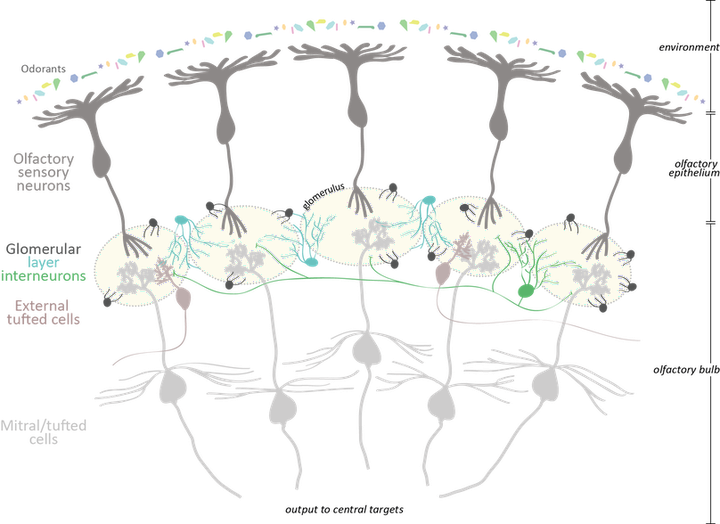Npas4 regulates Mdm2 expression to ubiquitinate and degrade Dcx in newborn olfactory bulb granule cells

Title: Npas4 Regulates Mdm2 and thus Dcx in Experience-Dependent Dendritic Spine Development of Newborn Olfactory Bulb Interneurons
Journal: Cell Reports, (2014) 8:843-857
Link: http://doi.org/10.1016/j.celrep.2014.06.056
Comments:
In order to clarify the precise mechanisms that integrate odor-induced activity with the developmental processes of olfactory bulb (OB) interneurons. Npas4 is expressed in OB granule cells (GCs) immediately after sensory input and is required for dendritic spine formation is identified.
In this study, a unilateral naris occlusion was used in combination with in situ hybridization to search for genes whose expression levels varied between the open and closed sides of the OB and whose expression were detected in the interneurons. By comparing the olfactory stimulation of high concentrations of the amyl acetate, with a unilateral naris occlusion, the authors showed that Npas4 was expressed in a subset of GCs and its expression depended on the level of sensory input. In the further experiment, the lentiviral vector was used in combination with Npas4 promoter. The results were that Npas4 overexpression and knockdown facilitated and repressed the development of dendritic spines in newborn OB GCs, respectively.
Next experiments focused on the relationship between Nasp4 and Mdm2 expression. Compared with wild-type mice, Mdm2 knockout enhanced the spinal density of OB GC dendrites, and Mdm2 was the real target gene of Npas4. Besides, polyubiquitinated Dcx were detected only in the cotransfection with the Dcx and Mdm2 plasmids, confirming that Mdm2 ubiquitinates Dcx for degradation.
Based on the above experimental results, it is suggested that Nasp4 is of great significance in regulating the density of dendritic spines in newborn OB by regulating the expression of Mdm2 and degradation of Dcx. Thus, we began to understand how sensory experience regulates dendritic spine development of OB interneurons.